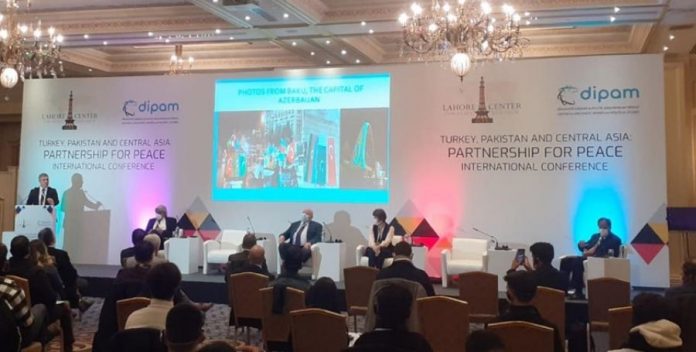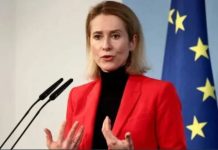Scholars from Turkey, Pakistan, Azerbaijan, central Asia convene to discuss ‘way forward for peace, progress’
ISTANBUL, FEB 16 – A two-day international peace conference began in Istanbul on Tuesday with speakers from several countries including Turkey, Pakistan, Azerbaijan, and Kazakhstan.
The conference titled Turkey, Pakistan and Central Asia: Partnership for Peace is co-hosted by Turkey’s Center for Diplomatic Affairs and Political Studies (DIPAM) in partnership with Pakistan’s Lahore Center for Peace Research (LCPR).
“We have to learn from each other to be partners in peace,” said Tolga Sakman, chairman of DIPAM.
Sakman called for cooperation at all levels among Turkey, Pakistan, and the Central Asian nations including in cultural, economic, political and academic areas.
Referring to Kashmir, Nagorno-Karabakh, and the Turkish Republic of Northern Cyprus, he said shared principles of Turkey, Pakistan and friendly countries in Central Asia “are going to make great contributions in the new era” of the world order.
“Hopefully, this conference acts as a platform where different visions will be shared and worked upon,” he added.
Holding our third conference in Turkey “shows the love and respect Pakistan has for this great country, Turkey,” Nazir Hussain, the executive director of the LCPR, told the conference which is being held amid strict COVID-19 measures.
Hussain, who is a former Pakistan foreign service diplomat, said the aim of the conference is to “promote research and build peace between cultures, societies and nations.”
“The region of Central Asia is very close to Pakistan as it is close to Turkey,” he said, calling it “greater Central Asia.” “We, as Pakistan, are very much part of it and want to work together in search of peace and prosperity,” he insisted.
Referring to Afghanistan, he said the country has seen no peace for over 40 years. “It has resulted in collateral damage and Pakistan has suffered the loss of 70,000 civilians and over 10,000 military officials.”
“Pakistan-Turkey relationship is not new; Muslims from South Asia always supported the great Ottomans and so is the case with modern-day Turkey,” he stated.
He recalled the travel of scholars coming from Central Asia to present-day Pakistan and the region.
“There is an inspiration from the region and we want to make an effort in this way for peace and progress,” he added.
Hussain suggested increased people-to-people contacts and said: “We need a collective effort to put the region together.”

















